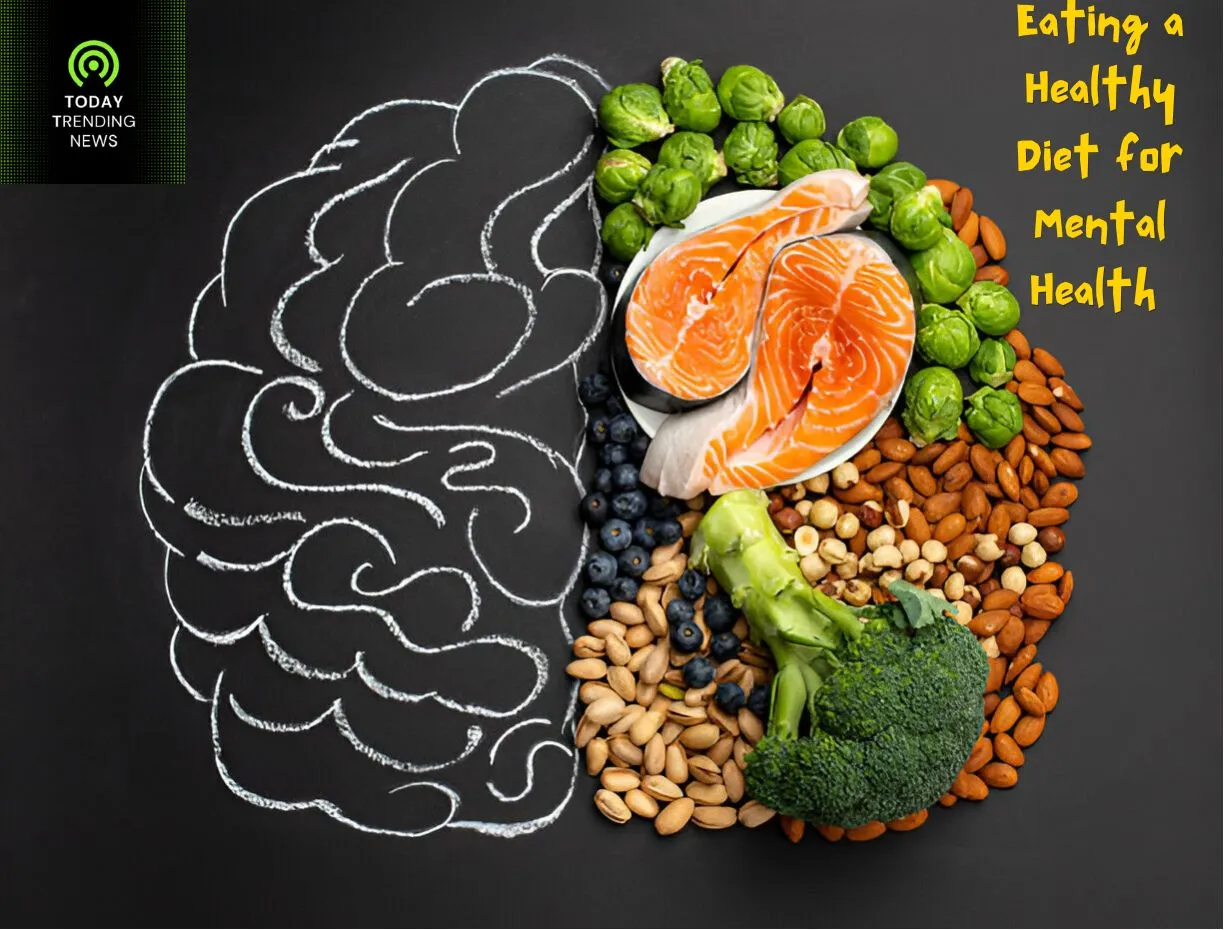Today, most people are aware that proper nutrition and Healthy Diet affects their overall physical condition very positively, but they are unaware of the fact that the same applies to their mental state. It appears that what we consume on the plate affects health, mood, energy, and even brain function.
Here, I will attempt to delve into the topic of healthy foods for the brain and moods, and explain how one can improve their moods through a healthy diet.
The Food-Mood Connection
The human brain is an organ that can regulate its nutrients on its own, provided that the necessary nutrients reach the blood stream. Building components of brain chemicals called neurotransmitters, which control moods, sleep, and concentration, requires the above nutrients.
A balanced diet that includes a variety of fruits and vegetables, whole-grain foods, and lean protein can provide it. On the other hand, foods that are more processed, such as those with sugary products and unhealthy fats, may negatively affect the balance that is necessary for anxiety, depression, and fatigue symptoms.
READ | Upcoming Smartphones in 2024: The Future of Mobile Technology
Foods for a Balanced Mind
The crucial question here is: Which specific foods should one eat to enhance their mental health? Here are some key players:
- Fruits and vegetables: These foods contain antioxidants and vitamins, and eating fruit and vegetables reduces inflammation and saves brain cells. We can divide foods into five groups based on the colours of a rainbow, and to ensure maximum intake of nutrients, the colours of the foods should be as diverse as possible in a day.
- Omega-3 Fatty Acids: Omega-3 fatty acids that are available in foods like salmon, tuna, and sardines are essential for brain health; they have also been found to have properties that can help improve moods and ease depression.
- Whole grains are a good source for stabilizing energy in the body, and the B vitamins are important for manufacturing neurotransmitters.
- Lean Protein: Proteins play a crucial role in the production of dopamine, a neurotransmitter that triggers feelings of pleasure and rewards. Fish, poultry, lean meats, legumes and nuts are some of the best protein sources for healthy diet.
- Healthy Fats: Do not run away from healthy fats, including olive oil, avocados, and nuts, among other foods containing these nutrients. These are healthy fats that are vital to the brain, and their consumption will always have a positive impact on its performance.
READ | Why Traveling Makes You Happy?
Making sustainable changes
However, transitioning from an unhealthy diet to a healthy diet one can be intimidating for many people. Here are some tips to get you started:
- Start small: Explore possible modifications in your diet in terms of gradual adjustment; for instance, instead of taking sweetened beverages, take water or increase your vegetable intake per meal.
- Focus on whole foods: The first step is to opt for whole, unprocessed products instead of snacks and ready-to-eat meals.
- Plan your meals: Pre-planning meals and snacks ensures that there are better and healthier options when one is hungry, thus avoiding the need to order the wrong meals.
- Cook more at home: Here’s a list of self-care tips, followed by a space for you to record your thoughts. A list of Ten Self-Care Tips I will finally live for myself. This means that you get to decide what is good for your body, as opposed to having POTF (Proof of Timely Filing) make those decisions for you.
- Don’t deprive yourself. It’s okay to indulge once in a while, so allow yourself to do so, but in moderation. A well-balanced diet is always good. Whether one is going for a toned look or a bulky muscular look, a balanced diet is good.
It is also important to remember that while healthy diet plays an important role in attaining optimal mental health, there are other factors as well. However, there is an additional factor that involves providing your body with the necessary nutrients, leading to happier, more energetic, and healthier individuals.
If you are dealing with some way, shape or form of mental health issues, do not hesitate to consult a health care professional. Professional help is helpful, and you may visit a licensed therapist or counsellor for advice.





Hey people!!!!!
Good mood and good luck to everyone!!!!!
Hey people!!!!!
Good mood and good luck to everyone!!!!!
Travel comfortably and without worries, at any time convenient for you with favorable rates for a long period of time.
How to save money on car rental, and get the best price and rental conditions
Mysimba – Quick and Easy Weight Lass
Mysimba is a medicine used along with diet and exercise to help manage weight in adults:
who are obese (have a body-mass index – BMI – of 30 or more);
who are overweight (have a BMI between 27 and 30) and have weight-related complications such as diabetes, abnormally high levels of fat in the blood, or high blood pressure.
BMI is a measurement that indicates body weight relative to height.
Mysimba contains the active substances naltrexone and bupropion.
https://cutt.ly/RezL73vz